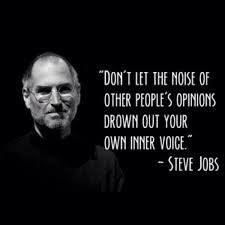《自律養生實踐家之旅354》 看戲的人

同樣的一件事、同樣的一幅畫面,我的人生卻被切割成兩種樣貌,那是關於一個人如何從生病走向康復的經歷。
在我的成長環境裡,生病就該接受治療,康復是治療的成果,健康是治療所賜予的恩典。
醫學教育一旦落地,只要有一位正規醫師走入職場,民眾的心中便被牢牢安裝了一條線性程式:治療=康復=健康。
父親的診所成了這條線性邏輯的根據地,也穩固了醫生在社會上的地位與形象。一個幾乎不容質疑的「視窗」被框定,無數奉醫療為圭臬的人被圈在其中。
我也曾是其中的一份子,家人與親友把父親當作典範,病人則把康復的希望寄託在他身上。
這樣的神話價值,長久綁架了我的思維。直到我熟悉「身體之道」的某一天,那個視窗忽然自動更新,昔日的信仰與執著瞬間瓦解。
那是一種奇異的感覺,好像我脫離了人類的世界,站在所有人對立的一方。我曾以為自己只是站在醫療的反面,後來才明白,我其實站在「所有人」的對面。
異類,成了我的形象。即使我用文字不斷呼籲「回到身體」,能因閱讀而轉換視窗的人仍是寥寥。就連幫我編書的編輯也說,必須全神貫注,才能理解書中的論述。
醫療的歌功頌德,在我眼裡全然是另一番景象。我只看到一座龐大的迷宮,無數人堅持走熟悉的路,卻不知自己已迷失其中。
我不必與人辯論,因為真理始終在身體這一方,自然法則也從未缺席。我沒有創造新理論,只是回到生物的本有。那一刻的頓悟,重新定義了「療癒」。
療癒,一直都在進行,身體從未放棄過努力。針對身體的真相,一方面領悟,一方面感動,我一邊記錄,一邊慶幸自己找到回家的路。
我稱這條路為「最遙遠的捷徑」,然而,我卻曾被引導進醫藥的權謀裡。那些迷路的人握有導遊的執照,帶領更多人走上一條永遠回不了家的路。
民間不斷上演同樣的劇情:一遍遍強調「趕快就醫,不能延誤」,恐懼成為主要劇本,迷糊則是故事核心。
就像我們看過的電影或舞台劇,散場後回想,卻說不出劇情的所以然來。
我們只是看戲的人,看得懂或看不懂,其實都不打緊,連演戲的人或許也講不清楚。
戲落幕,電影下片,餐廳歇業,賣場熄燈,我們終究只是曾經付過門票的觀眾、曾經支持過的老主顧。
親友因我們的介紹走進名醫的療程,最後治療失敗、生命劃下休止符,我們嘆息、感傷。
無論結果如何,我們從未跳脫「看戲的人」的角色。你以為盡了責任,醫生也自認已盡全力,但在真理面前,彼此都只是看戲的人。
身體演的才是那齣真正值得一看再看的大戲,而我們卻偏要執迷於外界的演出。偶爾,因為急症,必須進入醫療的劇場,但這些戲碼,其實都是長期忽視身體的必然代價。
處處都是看戲的人,處處也都是演戲的人。我們不看身體演,只愛看別人演,別人說好的、厲害的、有名的,我們全盤接受。
沒有真相的戲百看不厭,永遠看不懂的戲百看不膩,大家都認為這齣戲永遠不能下檔。
因為領悟,看見了戲的全貌:無法掌控的事、不會揭露的真相,最終都在別人的演出裡被掩蓋。看戲的人時而雀躍,時而嘆息。
戲依舊在演,有時我們成為台上的角色,大多時間只是台下的觀眾。
看戲的人,永遠是多數;看不懂的人,也永遠是多數。戲從不下檔,看戲的人卻一批又一批的離去。
一群人終於走上舞台,換成另一群觀眾,繼續坐下來,看戲。
(不要讓他人意見的噪音淹沒你自己的內在聲音)
The Spectators
The very same event, the very same scene, split my life into two entirely different realities. It was about a person’s journey from illness to recovery.
In the environment where I grew up, illness always meant treatment. Recovery was the outcome of treatment, and health was regarded as the gift bestowed by treatment.
Once medical education took root, the moment a licensed physician entered the profession, a linear formula was firmly installed in the minds of the public: treatment = recovery = health.
My father’s clinic became the stronghold of this linear logic. It reinforced not only the doctor’s status but also his image in society. A “window” of belief—almost beyond question—framed and confined countless people who upheld medicine as their creed.
I was once among them. My family and relatives regarded my father as a model, while patients placed their hope of recovery in his hands.
This myth held my thinking hostage for a long time. Until one day, through becoming familiar with the Way of the Body, that old window suddenly updated itself. In an instant, the faith and attachment of my past collapsed.
—
It was a strange sensation, as if I had stepped outside the human world, standing in opposition not just to medicine, but to everyone.
Being an outsider became my image. Even though I tirelessly wrote to urge people to “return to the body,” those whose perspective shifted through reading were few. Even my editor admitted that reading my manuscripts required complete concentration just to grasp the arguments.
Where people heard hymns of praise for medicine, I saw something entirely different: an immense labyrinth, where countless individuals insisted on walking familiar paths without realizing they were already lost inside.
I felt no need to argue, because truth always stood with the body, and the laws of nature had never been absent. I was not inventing a new theory—I was merely returning to what biology had always been. That moment of awakening redefined what “healing” meant.
—
Healing had always been underway. The body had never ceased its efforts. In discovering this truth, I felt both understanding and awe—recording it as I went, grateful that I had found the way home.
I called this path “the longest shortcut.” Yet I, too, had once been led into the power games of medicine. Those who had lost their way held tour guide licenses, leading ever more people down roads from which they could never return home.
In society, the same drama plays out again and again: the relentless chorus of “Seek medical help quickly, do not delay!” Fear becomes the main script, and confusion its very core.
It is like a film or stage play we have watched: once the show ends, we can hardly recall its essence.
We are merely spectators. Whether we understand or not doesn’t really matter—even the actors themselves might not be able to explain it clearly.
The curtain falls, the film goes off-screen, the restaurant closes, the store lights shut down. In the end, we are merely those who once bought tickets, once paid our support as loyal patrons.
—
When friends or relatives, through our recommendation, enter the care of a celebrated physician, and the treatment ultimately fails, ending with the final silence of death—we sigh, we grieve.
No matter the outcome, we never escape the role of “spectators.” You may think you have fulfilled your responsibility, the doctor may believe they have done their utmost, but in the face of truth, both are still only spectators.
The body itself is performing the one true drama—worth watching over and over—yet we stubbornly prefer the spectacles of the outside world.
Yes, sometimes acute crises force us into the theater of medicine, but those plays are nothing more than the inevitable cost of having long ignored the body.
Everywhere are spectators, everywhere are performers. We do not watch the body perform; we only delight in others’ performances—famous, powerful, celebrated—and accept them wholesale.
Plays without truth are endlessly watched. Dramas we can never understand are endlessly entertaining. Everyone insists this show must never close.
—
With awakening, I finally saw the play in full: the uncontrollable, the unrevealed truths—all concealed within others’ performances. Spectators cheer one moment, sigh the next.
The play continues. Sometimes we find ourselves cast onstage, but most of the time, we remain in the audience.
Spectators are always the majority; those who do not understand are also always the majority. The play never ends, yet the spectators depart, one group after another.
Eventually, a new crowd takes the stage, while another sits down in their seats—waiting to watch the play.


